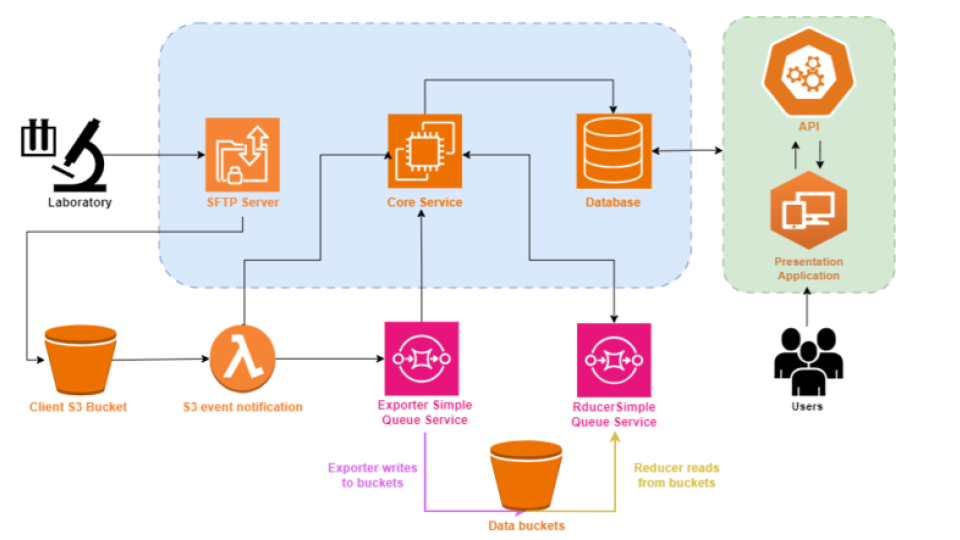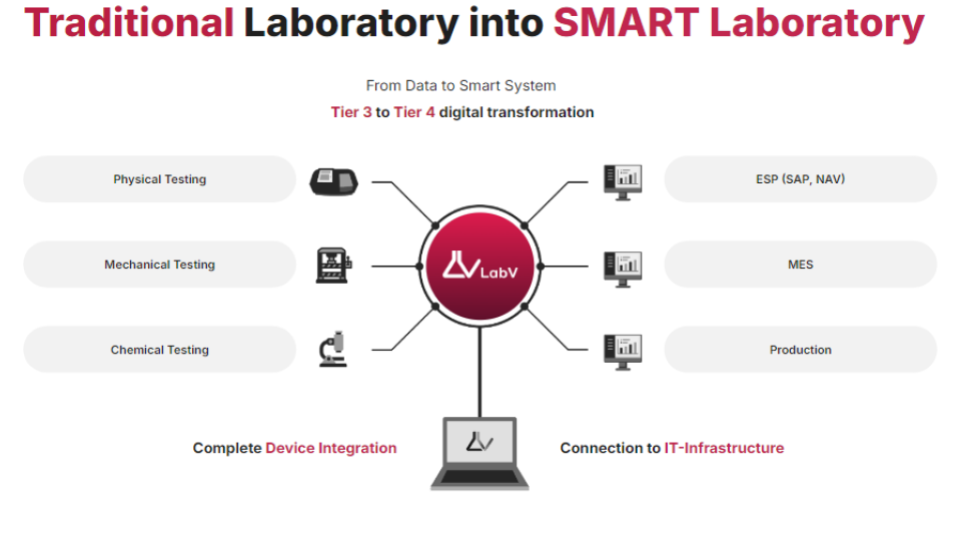Case Study
LabV
LABV
ongoing since 2021
INDUSTRY
Healthcare
COUNTRY
Germany
CUSTOMER RATING5.0
This ranking reflects our expertise and success. Read moreRead more about our Clutch rating
About LabV
TYPE OF SERVICE
Custom Software Development

Technology Stack
Apache Spark
Kafka
Grafana
Scala
PostgreSQL
MySQL
Apache Airflow
RabbitMQ
Challenge:
LabV faced significant challenges in managing the vast amounts of data generated by its materials testing laboratories. Historical data, critical for driving quality control and product development, remained underutilized due to fragmented systems and unconnected devices. The lack of centralized data management and analysis capabilities resulted in missed insights, manual data entry, and increased errors, hampering operational efficiency and decision-making.
Project management was equally complex, with multiple materials testing initiatives requiring meticulous coordination. The absence of integrated tools made it difficult to track progress, ensure consistency, and meet high-quality standards. These inefficiencies led to delays, resource misallocation, and compromised testing reliability, impacting LabV's ability to meet deadlines and client expectations.
Moreover, LabV struggled with limited capabilities in generating custom data searches and tailored reports, reducing responsiveness to client needs and diminishing its competitive advantage. Administrative bottlenecks in user access, project coordination, and resource management further slowed operations and increased costs. Balancing compliance, training, and legacy system integration added additional layers of complexity.
Addressing these operational, technological, and management challenges was essential for LabV to unlock the potential of its data, streamline processes, and maintain high-quality service delivery.
Solution:
The collaboration between LabV and Intertec revolutionized laboratory operations by combining LabV’s expertise in intelligent lab solutions with Intertec’s technological capabilities, delivering significant improvements in efficiency, accuracy, and productivity.
A centralized data management platform (DMP) seamlessly integrated diverse data sources, enhancing accessibility and enabling real-time analysis for more reliable decision-making. Automated tools replaced manual processes, freeing lab staff to focus on critical tasks and increasing overall productivity. Intuitive project management tools ensured accurate tracking and reporting, while improved data sharing facilitated seamless collaboration across teams.
The user-centric platform, featuring personalized dashboards, enhanced the user experience, driving satisfaction and aligning with industry standards. Operational efficiencies, including faster test execution and reduced costs, positioned LabV for sustainable growth, particularly in budget-conscious testing environments. Streamlined administrative processes and custom reporting capabilities further optimized operations, enabling LabV to deliver deeper insights and high-quality services.
The partnership’s success not only resolved operational challenges but also ensured LabV’s readiness for future growth and innovation.
Process Overview:

End-to-end ETL Process, digitizing & mapping data from various laboratory devices. Providing detailed reports, data insights, complex data search and material management.
Project Results

- Speed management & material development
- From manual to automated process
- Connecting all Laboratory devices by mapping their Data Output into the System
- Prediction Analysis based on unified data
- Unification of Data by using Latest ETL processes
- Anomaly detection & quality control
- HMI (Human Machine Interface) connectivity
- Process engineering


